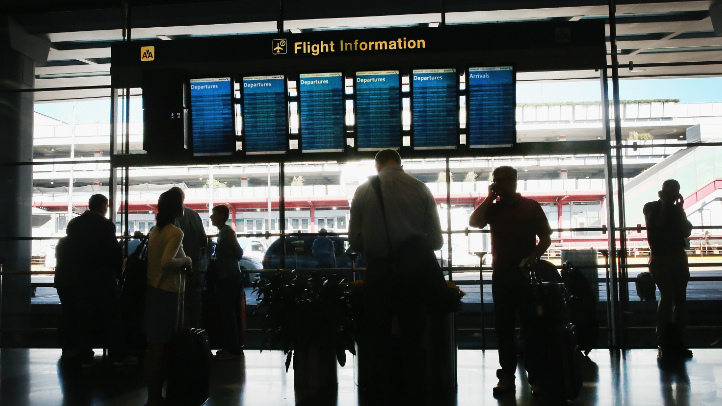A downstate Illinois judge on Friday granted a temporary restraining order in a case challenging the legality of the state's controversial assault weapons ban, effectively halting the law.
Circuit Court Judge Joshua Morrison in Effingham County announced the ruling two days after an emergency hearing surrounding the legislation, where hundreds of plaintiffs sought a temporary restraining order on the bill signed into law weeks earlier. Under the order, the state of Illinois is prevented from enforcement against any of the parties named in the lawsuit "unless and until further order of the court."
In his ruling, Morrison said, in part, "The defendants in this case did not follow the procedural requirements necessary for this legislation to stand up to the strict scrutiny that is required when restricting rights to avoid definitional irreparable harm."
In a statement Friday evening, Illinois Gov. J.B. Pritzker expressed disappointment, but acknowledged the decision was not surprising.
Feeling out of the loop? We'll catch you up on the Chicago news you need to know. Sign up for the weekly Chicago Catch-Up newsletter here.
"Although disappointing, it is the initial result we’ve seen in many cases brought by plaintiffs whose goal is to advance ideology over public safety," he said. "We are well aware that this is only the first step in defending this important legislation. I remain confident that the courts will uphold the constitutionality of Illinois’ law, which aligns with the eight other states with similar laws and was written in collaboration with lawmakers, advocates, and legal experts."
The Illinois State Rifle Association, which has filed its own federal lawsuit, issued a statement applauding Morrison's ruling.
“...This is a clear indication from the court that the General Assembly and Governor Pritzker rammed this law through improperly," Richard Pearson, executive director of the ISRA, said in the statement. "The ISRA firmly believes the law is an infringement on all law-abiding residents’ 2nd Amendment rights. We look forward to the proceedings in our federal case, and we will be keeping a close eye on any other cases as well.”
Local
The judge's ruling signals the start of what is likely bound to be a long legal battle.
A spokesperson for Illinois Attorney General Kwame Raoul's office said it has filed a notice of appeal, and Raoul has asked the Illinois Appellate Court to vacate and reverse the TRO.
Along with the Effingham County lawsuit that alleges several violations of constitutional rights, a second lawsuit was filed in Crawford County in the southeastern part of the state. That lawsuit says the bill not only violates the Second Amendment right of citizens to bear arms -- but it also goes a step further, alleging the state violated Fifth Amendment rights against self-incrimination, and 14th Amendment rights of equal protection.
The legislation bans the delivery, sale and purchase of any assault weapons in the state, and affects dozens of specific brands or types of rifles and handguns, .50-caliber guns, attachments and rapid-firing devices.
Additionally, no rifle will be allowed to accommodate more than 10 rounds, with a 15-round limit for handguns, the bill says.
Those who already own such guns will have to register them, including serial numbers, with the Illinois State Police. The new law enables merchants to sell or return current stock and Illinois-based manufacturers can sell their wares outside Illinois or to law enforcement.
A report from the Associated Press says eight states and the District of Columbia currently have bans on semiautomatic weapons, according to Tanya Schardt, working in favor of the legislation for the Brady Campaign. They differ in their definitions of semiautomatic weapons, but generally they ban 10-round clips for long guns and handguns. The bans have survived constitutional challenges in scores of courts, she said.
Five states — California, Connecticut, Hawaii, New Jersey and New York — require registration of guns purchased previous to the law, Schardt said. The other three states with bans are Delaware, Maryland and Massachusetts.
Registration often angers current owners but most tolerate the collection of information, Schardt said.
The legislation also provides protection. If police stop a car driven by a semiautomatic gun owner, for example, they can instantly check to ensure it's legally owned. And it allows law enforcement to trace a gun that, for example, is stolen and used in a crime.
Sheriffs in dozens of counties, including McHenry, DuPage, Kankakee, Boone and Winnebago have said their departments will not enforce provisions of the bill that require existing weapons to be registered with the State Police.
Their arguments center around their stance that the bill, which makes it illegal for Illinois residents to purchase, transfer or manufacture assault weapons and extended magazines, violates the Second Amendment.
Pritzker, who in an interview with MSNBC called the statements by sheriffs "grandstanding," says he is confident that the new bill will withstand legal scrutiny, and says that sheriffs are required by their oath of office to enforce the law.
“It’s our state police and law enforcement across the state that will, in fact, enforce this law, and these outlier sheriffs will comply or, frankly, they’ll have to answer to the voters,” Pritzker said.



